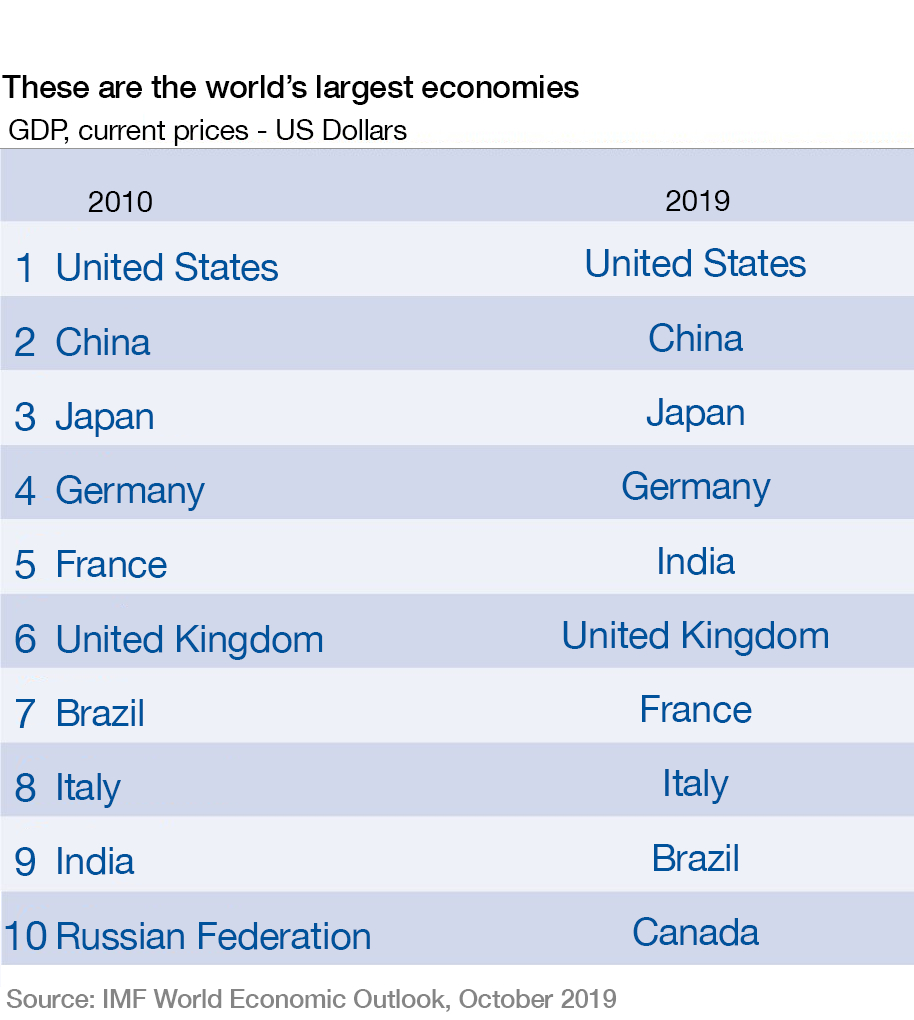India is now the world’s 5th largest economy

India's GDP has risen quickly in the past 25 years, leapfrogging France and the UK by some economic measures. Image: REUTERS/Vivek Prakash
- Data from the IMF shows India has risen to become the world’s fifth largest economy, when ranked by nominal GDP.
- India, in this ranking, has leapfrogged France and the UK.
- Despite its growth, challenges remain, from sustainability to infrastructure.
India became the world’s fifth largest economy last year, according to data from the IMF’s October World Economic Outlook. When ranked by nominal GDP, the country leapfrogged France and the UK.
The country's GDP growth has been among the highest in the world in the past decade – regularly achieving annual growth of between 6-7%.
This rapid rise has been fueled by a number of factors, according to a 2016 McKinsey Global Institute report, including urbanization and technologies that have improved efficiency and productivity.
India's real GDP, however, a measure that accounts for inflation, is forecast to slow in the year ahead thanks to credit weaknesses.

On the rise
As recently as 2010, India was in 9th place, trailing countries such as Brazil and Italy.
India's rise is even more dramatic across the past 25 years. Since 1995, the country's nominal GDP has jumped more than 700%.
Challenges ahead
Despite its strong economic growth, the country still faces its share of challenges. Access to development and new opportunities has been uneven, says the World Bank, varying by geographic location.
Furthermore, India remains home to one quarter of the world's poor. Just 39% of its rural residents can access sanitation facilities and nearly half the total population still defecate in the open, according to the UN.
What is the World Economic Forum doing about the skills gap in India?
Still, significant progress has been made. Poverty reduction rates are among the highest in the world, with more than 160 million fewer people living in extreme poverty in 2000 compared to 2015.
According to the World Bank, the country is also seeking ways to ensure its future growth is more sustainable and inclusive, adjusting its policies regarding social protections and infrastructure development.
Don't miss any update on this topic
Create a free account and access your personalized content collection with our latest publications and analyses.
License and Republishing
World Economic Forum articles may be republished in accordance with the Creative Commons Attribution-NonCommercial-NoDerivatives 4.0 International Public License, and in accordance with our Terms of Use.
The views expressed in this article are those of the author alone and not the World Economic Forum.
Stay up to date:
New Growth Models
Related topics:
Forum Stories newsletter
Bringing you weekly curated insights and analysis on the global issues that matter.
More on Geographies in DepthSee all
Naoko Tochibayashi
October 30, 2025








